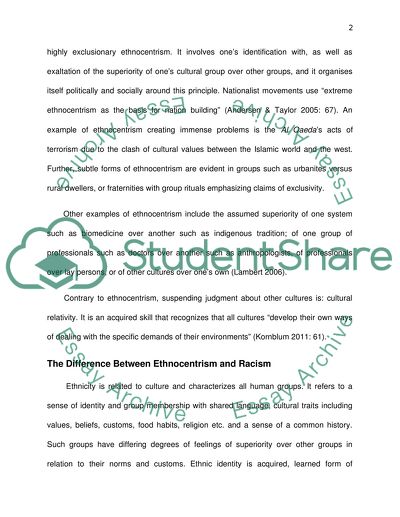Cite this document
(“Ethnocentrism, Racism and Health Care Essay Example | Topics and Well Written Essays - 1250 words”, n.d.)
Retrieved from https://studentshare.org/sociology/1579401-ethnocentrism-racism-and-health-care
Retrieved from https://studentshare.org/sociology/1579401-ethnocentrism-racism-and-health-care
(Ethnocentrism, Racism and Health Care Essay Example | Topics and Well Written Essays - 1250 Words)
https://studentshare.org/sociology/1579401-ethnocentrism-racism-and-health-care.
https://studentshare.org/sociology/1579401-ethnocentrism-racism-and-health-care.
“Ethnocentrism, Racism and Health Care Essay Example | Topics and Well Written Essays - 1250 Words”, n.d. https://studentshare.org/sociology/1579401-ethnocentrism-racism-and-health-care.


